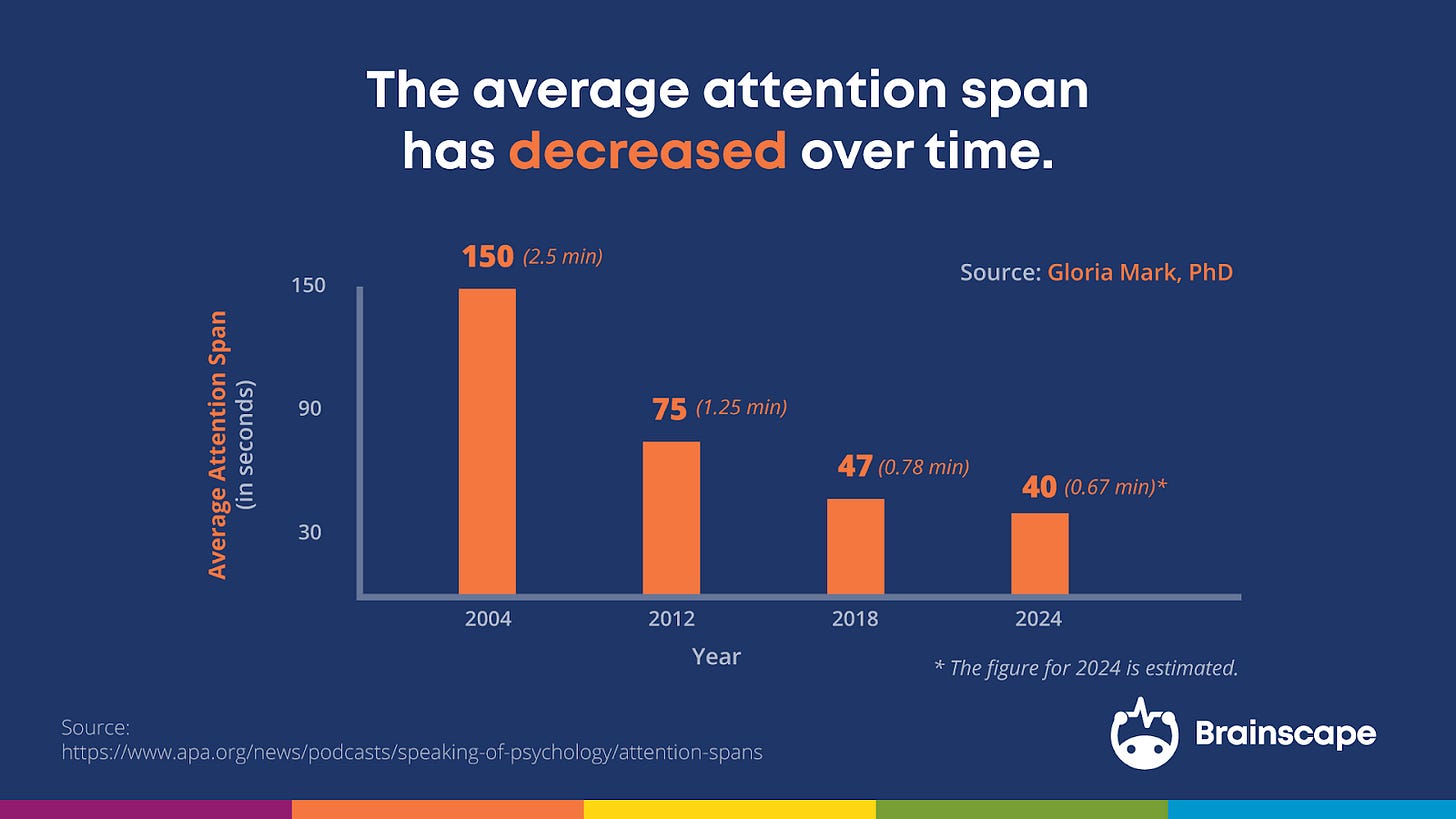Training For The Mind
During my freshman year at Brown University, I was entirely focused on football and didn’t take academics seriously.
While selecting my first-semester class schedule—with my teammates snickering beside me—I enrolled in an introductory course on meditation… as a joke.

But I gave the meditation class an honest try. By the end of the semester, my mind felt different. I was more aware of my thoughts—and less attached to them.
I had developed a newfound ability to focus on the things that mattered most to me. At the time, that meant I could spend more time watching game film.
At 19, I learned that focused attention is a superpower. It helps you be more present. It also helps you be more productive—directing your energy toward the things you love, without distraction.
By the time I came home from that first semester, I saw meditation as training for the mind. Just as worthy of my time as squat day.
Goldfish Attention Span
Gloria Mark, PhD, found over decades of research into the science of focus that human attention spans have been steadily decreasing over time.
In 2004, the average attention span was 150 seconds.
By 2024, attention spans had dropped to just 40 seconds.

Some studies even suggest that goldfish now have a longer attention span than the average human.1 Yikes.
Focus Is A Force Multiplier
“Focus is a force multiplier on work. Almost everyone I’ve ever met would be well-served by spending more time thinking about what to focus on. It is much more important to work on the right thing than it is to work many hours. Most people waste most of their time on stuff that doesn’t matter.
Once you have figured out what to do, be unstoppable about getting your small handful of priorities accomplished quickly. I have yet to meet a slow-moving person who is very successful.”2—Sam Altman
Attention Residue
A 2009 paper by Sophie Leroy introduced the idea of attention residue: when part of your mind remains stuck on a previous task instead of being fully present with what you’re doing now.3
Let’s say you’re cooking steak and eggs for breakfast. If you leave the steak on the grill to check on the eggs, your brain keeps part of its attention on the steak—even after you turned your attention to the eggs.
Interestingly, Leroy found that being under a deadline helps people mentally “close the loop” on their previous task. That closure reduces attention residue and frees up focus for the next thing.
What You Can Do Today To Live With Focus
Focus is the new superpower of the 21st century. If you can train yourself to direct it well, you’ll live a more fulfilling—and less stressful—life.
Pick one of these habits and start today:
Put your phone away while you work.4
Limit yourself to doing just one thing at a time.
Meditate more. Train your mind.
— Grant Varner
Time Magazine. “You Now Have a Shorter Attention Span Than a Goldfish.” Time, May 14, 2015. https://time.com/3858309/attention-spans-goldfish
Sam Altman. “How To Be Successful.” Sam Altman’s Blog, https://blog.samaltman.com/how-to-be-successful. Accessed April 9, 2025.
Leroy, Sophie. “Attention Residue.” University of Washington Bothell, School of Business. https://www.uwb.edu/business/faculty/sophie-leroy/attention-residue
Thanks Brandon Davenport for the suggestion!





Going back to the decision making theme, I wonder if pursuing ‘focus’ or ‘solitude’ in times of uncertainty could be an advisable strategy. Creating space to process observations and chat with God.